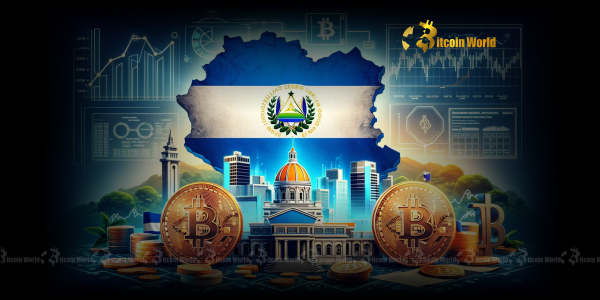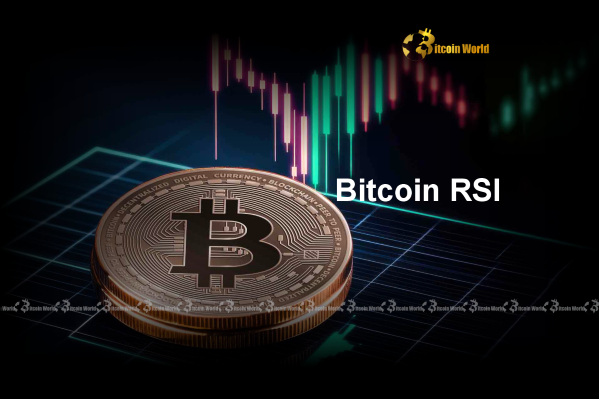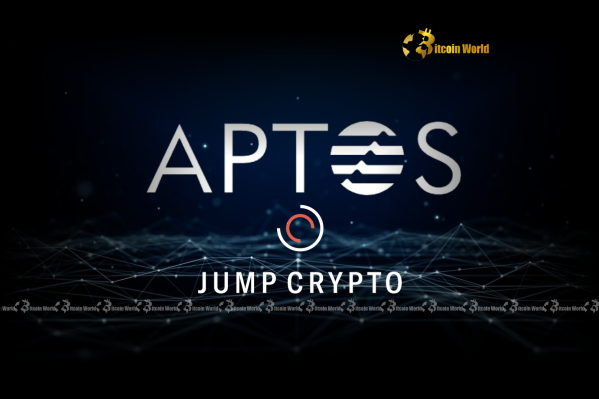BitcoinWorld

El Salvador Bitcoin: Unleashing New Horizons in Digital Asset Policy
The world of digital assets is constantly evolving, with nations increasingly exploring the transformative potential of cryptocurrencies and blockchain technology. A recent, highly significant development has sent ripples through the global crypto community: a meeting between El Salvador’s visionary President, Nayib Bukele, and Pakistan’s State Minister for Blockchain and Crypto, Bilal Bin Saqib. This high-level dialogue signals a growing international interest in leveraging digital currencies for national development and hints at a future where El Salvador Bitcoin initiatives could inspire wider adoption.
The Historic Meeting: What Does It Mean for Pakistan Crypto?
The encounter, reported by Watcher Guru via X, brought together two key figures from nations with vastly different approaches to the digital asset space. President Bukele, globally recognized for making Bitcoin legal tender in El Salvador, met with Minister Saqib, who represents Pakistan’s efforts to explore blockchain and crypto within its economy. This meeting is more than a mere handshake; it represents a burgeoning interest from emerging economies in understanding and potentially adopting innovative financial technologies.
For Pakistan Crypto enthusiasts and policymakers, this meeting offers a unique opportunity. Pakistan has historically maintained a cautious, often restrictive, stance on cryptocurrencies. While the State Bank of Pakistan has issued warnings against decentralized digital currencies, there have also been discussions within government circles about developing a national cryptocurrency or regulating the existing market. The presence of a dedicated State Minister for Blockchain and Crypto underscores a recognition of the technology’s potential, even amidst regulatory ambiguities.
Key areas of potential discussion during such a high-profile meeting could include:
- Regulatory Frameworks: How El Salvador navigated the legal complexities of adopting Bitcoin as legal tender.
- Economic Integration: Strategies for integrating digital assets into the national economy, including remittances and financial inclusion.
- Technological Infrastructure: Building the necessary digital infrastructure to support widespread crypto use.
- Education and Awareness: Public campaigns to foster understanding and adoption of new financial tools.
This dialogue could pave the way for Pakistan to learn from El Salvador’s pioneering, albeit challenging, experience, potentially influencing its future digital asset strategy.
Nayib Bukele’s Vision: A Blueprint for National Crypto Strategy
At the heart of this meeting is Nayib Bukele, a leader who has fundamentally reshaped El Salvador’s economic narrative by betting big on Bitcoin. In September 2021, El Salvador became the first country to adopt Bitcoin as legal tender, a move that garnered both praise and criticism globally. Bukele’s administration has since launched several initiatives aimed at integrating Bitcoin into daily life, including the Chivo Wallet, Bitcoin mining powered by geothermal energy (Volcano Energy), and the ambitious “Bitcoin City” project financed by “Volcano Bonds.”
Bukele’s vision is rooted in several core beliefs:
- Financial Inclusion: Providing banking services to the unbanked population through Bitcoin.
- Remittance Cost Reduction: Significantly cutting down fees on remittances, a vital source of income for many Salvadoran families.
- Economic Sovereignty: Reducing reliance on traditional financial institutions and the U.S. dollar.
- Attracting Investment and Tourism: Positioning El Salvador as a hub for crypto innovation and attracting foreign capital.
While El Salvador’s journey with Bitcoin has faced hurdles, including price volatility and skepticism from international bodies like the IMF, it has undeniably placed the small Central American nation on the global stage as a trailblazer in digital finance. For other developing nations, Bukele’s bold strategy serves as a compelling case study, highlighting both the immense potential and the inherent risks of such a profound economic shift.
Driving Global Crypto Adoption: Lessons and Opportunities
The meeting between Bukele and Saqib is a clear indicator of a broader trend towards Global Crypto Adoption. It signifies that discussions about digital assets are moving beyond niche tech circles and into the highest echelons of national governance. Countries are increasingly recognizing that ignoring the crypto revolution is no longer an option; instead, they must engage with it, understand it, and determine how it fits into their national economic goals.
The potential for global crypto adoption extends across various sectors:
- Cross-Border Payments: Facilitating faster, cheaper international transactions.
- Supply Chain Management: Enhancing transparency and efficiency using blockchain technology.
- Decentralized Finance (DeFi): Opening up new avenues for financial services without intermediaries.
- Digital Identity: Secure and verifiable digital identities leveraging blockchain.
El Salvador’s experience, while unique, offers valuable lessons. It demonstrates that political will and a clear vision can drive rapid technological integration. However, it also underscores the importance of public education, robust infrastructure, and a balanced regulatory approach to ensure stability and consumer protection. As more nations explore this path, collaboration and shared learning become paramount to fostering responsible and sustainable global crypto adoption.
Shaping Digital Asset Policy: Challenges and Collaborative Paths
One of the most critical aspects of this evolving landscape is the development of sound Digital Asset Policy. The lack of clear, harmonized regulations is often cited as a major barrier to mainstream crypto adoption and innovation. Meetings like the one between Bukele and Saqib provide a platform for nations to discuss best practices, regulatory challenges, and potential frameworks that can foster growth while mitigating risks.
Developing effective digital asset policy involves navigating several complex considerations:
- Consumer Protection: Safeguarding users from fraud, scams, and market manipulation.
- Financial Stability: Ensuring that the integration of digital assets does not destabilize traditional financial systems.
- Anti-Money Laundering (AML) & Counter-Terrorist Financing (CTF): Implementing robust measures to prevent illicit activities.
- Innovation vs. Regulation: Striking a balance that encourages technological advancement without stifling it with overly restrictive rules.
- Taxation: Establishing clear guidelines for taxing crypto transactions and holdings.
International collaboration is vital in shaping these policies. By sharing insights on regulatory successes and failures, countries can collectively work towards a more coherent global framework for digital assets. This collaborative approach can help prevent regulatory arbitrage, promote cross-border innovation, and build a more secure and efficient global digital economy.
A Landmark Dialogue for the Digital Future
The meeting between President Nayib Bukele and Minister Bilal Bin Saqib is a significant moment in the ongoing narrative of global digital transformation. It highlights El Salvador’s continued role as a pioneer in the Bitcoin space and underscores Pakistan’s growing recognition of blockchain and cryptocurrencies as vital components of future economic development. While the immediate outcomes of this specific meeting remain to be seen, its symbolic importance is immense.
This dialogue signifies a shift from mere curiosity to active engagement among nations regarding digital assets. It suggests a future where international cooperation on crypto and blockchain policies becomes more common, leading to more robust frameworks, increased adoption, and ultimately, a more integrated and innovative global financial system. The road ahead for digital asset integration is complex, but with leaders willing to engage in such high-level discussions, the potential for a truly transformative digital future appears increasingly within reach.
To learn more about the latest crypto market trends, explore our article on key developments shaping global crypto adoption and digital asset policy.
This post El Salvador Bitcoin: Unleashing New Horizons in Digital Asset Policy first appeared on BitcoinWorld and is written by Editorial Team





